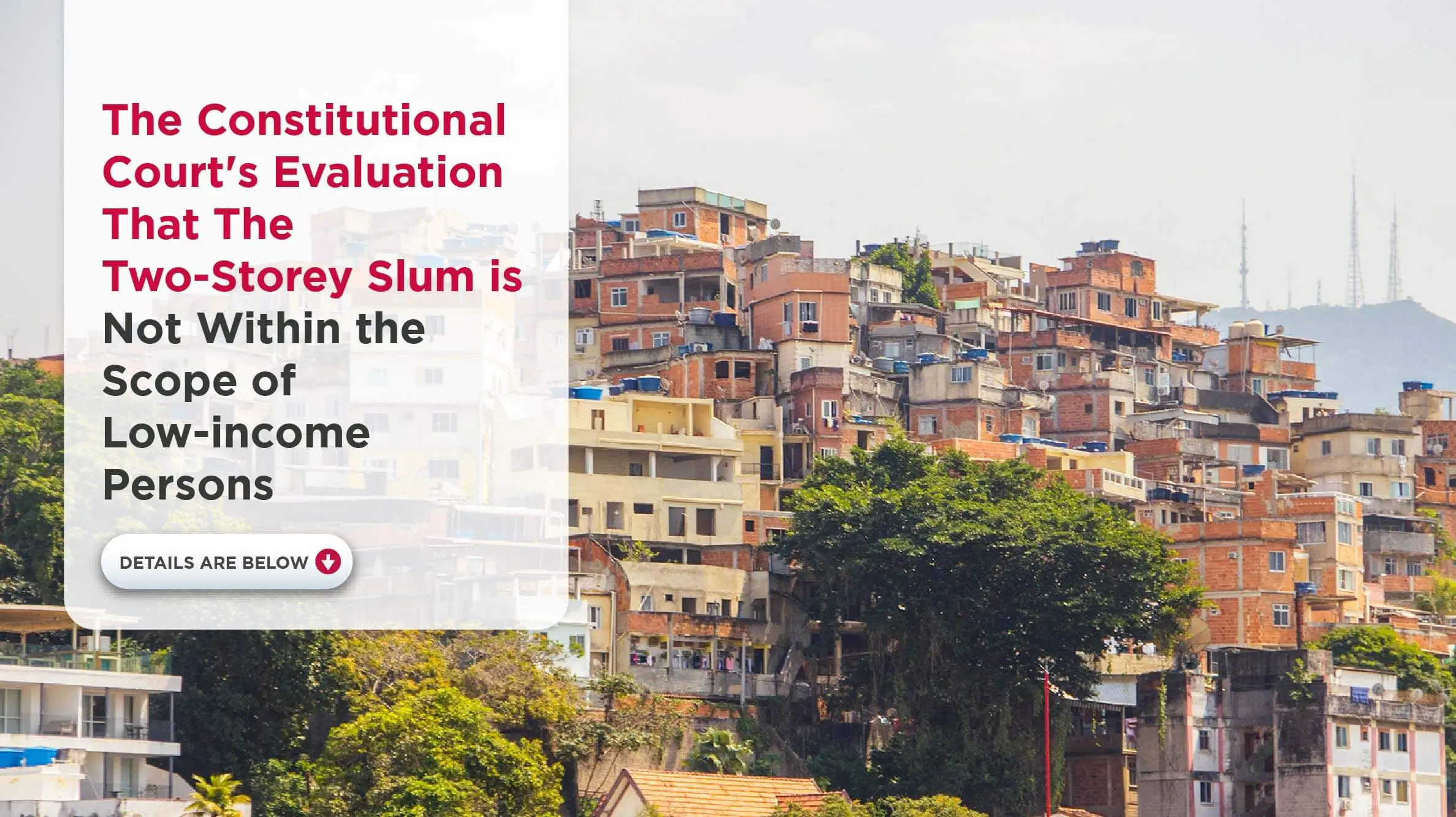Your Partner
in Legal Success
| Reading Time: 2 Minutes
The Constitutional Court’s Evaluation That The Two-Storey Slum is Not Within The Scope of Low-income Persons

The Constitutional Court decided that the slum resident’s property right was violated by evaluating the title deed allocation document of the slum resident that the slum is not included in the scope of low-income persons on the ground that it is a two-storey slum.
The applicants are the heirs of M.M., who died in 2017. M.M. applied to the municipality in 1985 to request a title deed allocation document for the two-story slum built on the real estate registered in the title deed in the name of the Treasury. The relevant municipality allocated 79m2 of land to their name in 1992.
In 2014, the municipality took back the title deed allocation document 22 years later on the grounds that the slum was two-storied and the condition of being low-income was not met.
The person filed a lawsuit in the Administrative Court in 2014 with a request to cancel the transaction related to the retrieval of the title deed allocation document; the court discussed the situation of low-income contrary to the purpose of the Law, and the case was dismissed, stating that the slum does not meet the condition of low income due to the fact that it has two floors.
M.M. appealed against the Administrative Court’s decision, claiming that the same slum had two floors and did not prevent the issuance of a title deed certificate. However, the Appeal Court upheld the Administrative Court’s decision, and the applicants filed individual applications with the Constitutional Court in 2019.
The Constitutional Court stated that the main issue to be examined in the concrete case is determining whether there is a legal basis for being low-income.
The Constitutional Court stated that in Article 2 of Law No. 2981, the phrase “constructed in violation of the zoning and slum legislation” and the regulations did not include any restrictions on the number of floors and flats in the building, the Administrative Court decided based on the Law in general instead of the Articles of the Law.
It has been stated that the reasons for the Law are normally used in the evaluation; however, the establishment of a restriction that is not stipulated in the Law, based on the purpose determined from the justification of the Law, may damage the “Rule of Law” principle regulated in Article 2 of the Constitution.
Finally, the Constitutional Court stated that the interpretation of the Administrative Court regarding the discrimination in terms of the number of floors in the Law, based on the reasoning of the Law rather than the regulations of the Law, is not predictable and that there is no legal basis for the interference with the property rights of the applicants; decided that the right to property guaranteed in Article 35 of the Constitution had been violated.
Click here to read more News.



